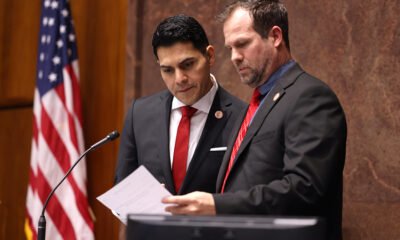bipartisan
Give Voters a Real Choice: Reviving Bipartisan Compromise

Protests erupted across the nation on May 1st, reflecting widespread discontent with a government that many believe fails to represent the majority’s will. These demonstrations signify a deeper issue than any single political figure; even if former President Trump were to vanish, the systemic problems would remain.
Beyond the Executive Branch, a troubling trend is evident: numerous elected officials avoid engaging with constituents. How can democracy thrive when representatives evade accountability? This disconnect signals a growing disillusionment with the political landscape.
The root of this issue lies in the election system. In Arizona, 83% of legislative districts are heavily one-sided, which reduces meaningful elections to low-turnout party primaries. Shockingly, around 40% of registered Republicans participate in these primaries, predominantly from the far edges of the party. A similar pattern emerges among Democrats, amplifying the divide. At the federal level, over 83% of U.S. House seats were decided by just 7% of voters in the last election.
This structure allows representatives to avoid accountability, as they can secure re-election by catering solely to a small base that often constitutes less than 15% of their actual constituency. This avoidance is not merely a tactic; it is a survival strategy against primary challenges that threaten their positions.
Current laws discourage essential governance practices like bipartisan discussion and compromise, favoring partisanship and negative campaigning. However, there is hope for change through reforms in election laws.
Voter Choice Arizona proposes a system called Final Five Voting, where five diverse candidates advance to the general election. Voters could rank these candidates, enabling them to select a preferred choice and a backup. This approach would empower voters to prioritize genuine preferences rather than settling for the lesser of two evils.
Such reforms would recalibrate the incentives for elected officials, encouraging collaboration to address real issues instead of fostering division. The shift would promote unity and constructive governance.
Voter Choice Arizona is dedicated to effecting this necessary change, building momentum across the state to enhance voter voice, choice, and accountability in elections. The organization seeks broad support to empower the populace and reclaim control from entrenched power structures.
Mark Cable serves as a volunteer and executive team member for Voter Choice Arizona.


















